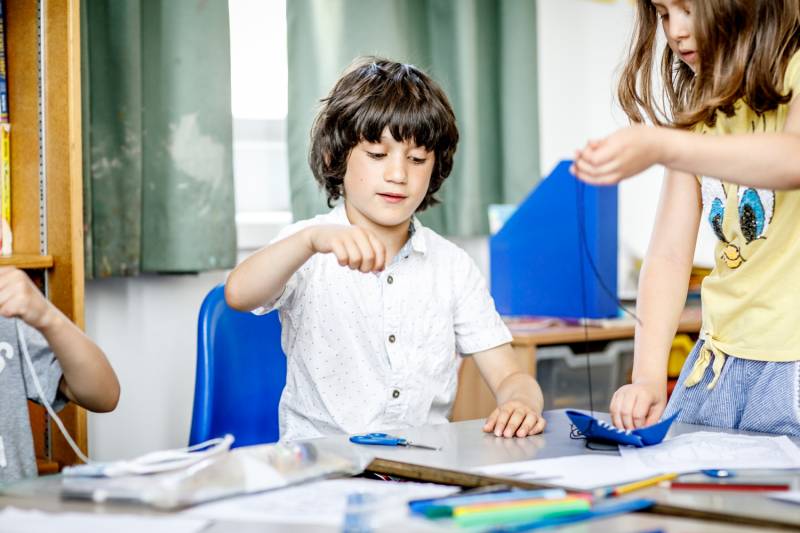
Find out more about our broad and balanced curriculum…
Yerbury Curriculum Intent:
At Yerbury we are proud to provide a relevant and broad education for all of our children; it is ambitious, knowledge-rich and experiential, and it is adapted to suits the needs of children with different abilities and backgrounds. We use the Early Years Framework in Early Years and the Primary National Curriculum from Y1-Y6; along with the ‘wider’ and ‘hidden’ curriculum here at Yerbury, we provide our pupils with the essential knowledge, skills and behaviours that they need to be well-rounded individuals and be successful at their next stage of education.
Our children experience a broad and balanced provision in Nursery and Reception in line with the Early Years Framework across the following areas:
- Communication & Language
- Physical Development
- Personal, Social and Emotional Development
- Literacy
- Maths
- Understanding of the World
- Expressive Arts & Design
They then experience a broad and balanced curriculum across KS1 and KS2, as stipulated by the National Curriculum, in the following areas:
- English: Reading, Writing & Speaking and Listening
- Maths
- Science
- Geography
- History
- Computing
- Modern Foreign Languages (informed by local secondary schools’ offer)
- Music
- Physical Education
- Art
- Religious Education
- Design & Technology
- Personal, Social, Health Education (not statutory, but fully embedded as though it were)
Subject overviews and individual class curriculum maps give further detail on each subject and each year group.
Curriculum Leaders:
All subjects have an allocated subject leader, who is an advocate of the subject, keeps up-to-date with subject-specific initiatives, and ensures teachers have the right resources and training to teach it to a high quality. The National Curriculum provides an outline of core knowledge from which subject leaders create curriculum maps within their subject area, and plan sequential and progressive units of learning across the school. Teachers then develop exciting and stimulating lessons from these units to promote the development of children’s knowledge, understanding and skills; to promote the spiritual, moral, cultural, mental and physical development of children; and to prepare them for the opportunities, responsibilities and experiences of later life.
The ‘Wider’ Curriculum at Yerbury:
There are also areas or approaches that the school places emphasis on which regularly feed into assemblies, topics, projects and school initiatives or foci. We call this the ‘wider curriculum’. Some of these include:
Importance placed on PSHE, Developing Good Mental Health and Well-being (‘Getting Back to Green’), Outdoor Learning, ‘British Values’, Digital Resilience (E-safety), The Maths Mastery Approach, Philosophy For Children; Islington Reading Road Map; Let’s Think in English.
We review our approaches regularly and evaluate as a whole staff what is working well, having a positive impact, and what is or isn’t the best for our children. We keep abreast of education policy and pedagogical research, and work in partnership with many educational institutions/ collectives (e.g. Institute of Education, FutureZone, Maths Hub). We are forward-thinking and progressive in our approaches, trying to ensure that our curriculum is not just ‘keeping up’ with what children need in their lives, but actually pre-empting what they will need when they move on.
The ‘Hidden’ Curriculum at Yerbury:
It is impossible to name the wealth of learning which can and does take place when staff are attuned to all learning opportunities during the day and use them as such in the moment. It consists of daily, immeasurable social interactions which over time develop positive attitudes and behaviours in the children. These are not stated explicitly, hence being called the ‘hidden curriculum’; however, our ethos, behaviour policy, systems and CPD (Continuous Professional Development), all ensure that staff use the opportunities as they come about, that we all sing from the same song sheet, and we have the same, high expectations for all children.
The ‘End Points’ we have agreed for our children are made up of the following:
Quantitative end-points:
- National Curriculum end-of phase & Key Stage objectives – we want all of our children to have achieved these to the best of their ability. We know this through assessing children at the end of the academic year in subject areas.
- National Outcomes – we would like our children to attain above national average at all key stage points, and progress really well while at Yerbury. We know this from the Reception GLD, Phonics, KS1 and end of KS2 results of national tests.
Qualitative end-points:
‘Our Hope For The Yerbury Child’ – we would like our children to be well-rounded and responsible individuals when they leave. We ensure that opportunities for developing all of the named characteristics, skills and attitudes are interwoven into the daily experience of the children’s life at school and curriculum over time, with one key area as a focus on the School every year.
Our Remote Education Policy can be viewed by clicking the link.
You can find out more about our Curriculum by emailing admin@yerbury.islington.sch.uk
